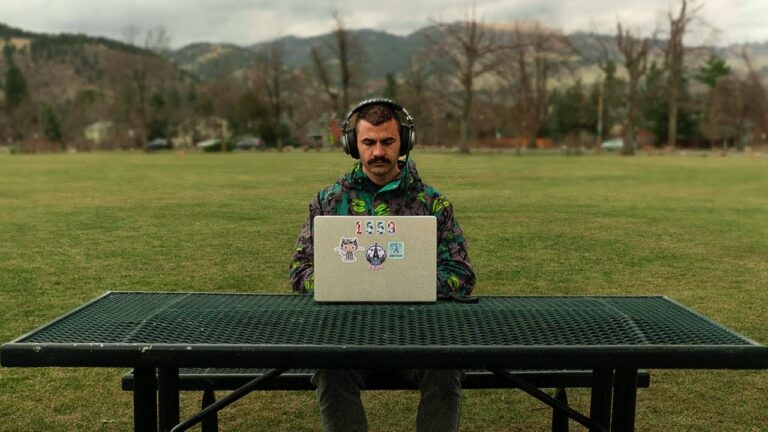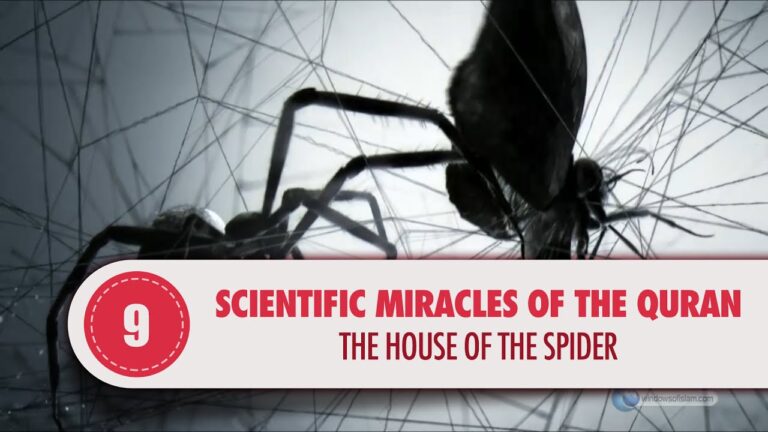The Sword Behind the Smile: Unmasking Intentions with Musashi’s Invisible Code of Truth
How ancient samurai psychology, nature’s rhythm, and the void within help you decode people’s motives with surgical clarity—and why modern hearts often misread the signs.
Time Interval: 00:00 – 12:27
1a. What They Don’t Say is Louder Than Words
📌 00:00
📝 The Point:
• People’s real intentions aren’t in their words—they’re in what leaks out when they’re not trying.
• Musashi didn’t trust masks; he read between the gestures, tone, and timing to find truth.
• Intentions, especially hidden ones, shape outcomes more than we realize.
⚖️ The Law:
• Intentions shape consequences more than actions.
• Falsehood cloaks itself in politeness and performance.
• Islamically, “Innamal a’maal bin-niyyaat” – actions are judged by intentions (Bukhari).
🔮 And So:
• You can be socially graceful yet morally deceptive.
• Most people get hurt because they believe charm equals character.
• The ripple effect of ignoring true intentions is misaligned lives and relationships.
What if we’ve built our lives on facades we mistook for sincerity?
1b. The Void Mind: Seeing Clearly by Thinking Less
📌 01:33
📝 The Point:
• Musashi taught that in battle—and life—clarity comes from emptiness, not intensity.
• “Void” doesn’t mean nothing; it means undistorted presence.
• Most fail to read others because their ego and emotions fog their vision.
⚖️ The Law:
• Detach from outcomes to truly observe reality.
• Spiritual clarity requires stillness.
• “Tazkiyah” (purification of soul) in Islam aims for this same void – the qalb saleem (sound heart).
🔮 And So:
• We can’t discern intentions if we’re emotionally entangled.
• Letting go of inner noise amplifies external truth.
• A reactive mind is a blind mind.
What could we perceive if we weren’t projecting our own fears and hopes onto people?
1c. Nature Never Lies: The Five Elements of Behavior
📌 03:05
📝 The Point:
• Musashi mapped human behavior onto five natural elements: Earth (consistency), Water (adaptability), Fire (energy), Wind (patterns), Void (what’s missing).
• These reveal not just personality but intention in action.
• Watching someone in different states uncovers their inner architecture.
⚖️ The Law:
• Consistency > charisma.
• Patterns don’t lie.
• Hidden parts reveal the heart—Quran: “Indeed, the hearing, sight and the heart – all will be questioned” (17:36).
🔮 And So:
• Analyze what people do when they think no one’s watching.
• Their reaction to chaos shows their truth.
• The patterns of presence and absence are the truest biography.
Are we brave enough to judge people not by moments, but by patterns?
1d. Deception Has a Signature
📌 06:03
📝 The Point:
• Musashi warned: deception isn’t always loud—it’s layered, subtle, strategic.
• There are three masks: physical (body language), verbal (words), and intentional (full strategy).
• We miss deception because we focus on one channel, not the whole orchestra.
⚖️ The Law:
• Lies are most believable when they are half-true.
• Observe the gaps, not just the gestures.
• The Prophet Muhammad (PBUH) said: “A believer is not stung from the same hole twice.” (Bukhari)
🔮 And So:
• Mixed signals aren’t confusion—they’re contradictions revealing the hidden.
• Constant micro-adjustments = someone who’s performing, not being.
• True deceivers orchestrate every word, pause, and posture.
If someone always seems “just a little off,” what are you refusing to admit?
1e. Desire Distorts Vision
📌 08:17
📝 The Point:
• We misread intentions not because others are skilled—but because we want to.
• Musashi’s “Dokkodo” warned against pleasure-seeking, partial feelings, and lust/love—all blinding filters.
• Emotional investment alters perception. Neuroscience now agrees.
⚖️ The Law:
• What we crave clouds what we see.
• Bias is the mind’s traitor.
• Imam Al-Ghazali: “The intellect is like a scale; if the weights are tampered by love or hate, it won’t weigh justly.”
🔮 And So:
• We trust lies when they align with our hopes.
• Even intelligent people get duped by desire.
• Real objectivity requires emotional discipline.
What truths are we blind to because accepting them would hurt too much?
1f. Small vs. Large: The Art of Selective Seeing
📌 10:21
📝 The Point:
• The greatest mistake in perception is obsessing over details and missing patterns.
• Musashi taught “watching large” – seeing holistic behavior rather than isolated moments.
• It’s the context, not the content, that reveals truth.
⚖️ The Law:
• Details deceive, patterns reveal.
• One act doesn’t define a person—repetition does.
• The Qur’an repeats: “Do they not reflect?”—encouraging pattern recognition over impulsive judgment.
🔮 And So:
• People can fake moments, but not lives.
• A single betrayal doesn’t ruin trust—patterns of betrayal do.
• Wisdom is in the wide lens, not the magnifying glass.
What if the truth has always been visible—just too big to notice?
Glossary
• Void: State of unconditioned awareness, free from mental filters.
• Tazkiyah: Spiritual purification in Islam.
• Dokkodo: Musashi’s “21 Principles” of life.
• Confirmation Bias: The psychological habit of noticing only evidence that supports one’s beliefs.
• Ken vs. Kan: Surface observation vs. intuitive perception.
10 Unbreakable Laws of Perception: Musashi’s Code for Reading Intentions Like a Warrior-Psychic
1. Thou Shalt Empty Thy Mind Before Judging Another
Act: Begin every interaction from a place of stillness. Breathe. Let go of assumptions.
Why: Clarity demands inner silence. Projection is the enemy of perception.
How: Enter “the Void”—a state where you see without distortion.
2. Thou Shalt Observe Patterns, Not Performances
Act: Ignore grand gestures. Track consistency.
Why: A liar can dazzle in moments—but habits never lie.
How: Make memory your ledger. Note who shows up and who disappears when no one is watching.
3. Thou Shalt Trust Nature More Than Narratives
Act: Read people as forces of nature—earth, water, fire, wind, void.
Why: Musashi saw humans not as mysteries, but as ecosystems.
How: Watch their rhythm, adaptability, energy, and absence. Every element speaks.
4. Thou Shalt Decode the Unspoken
Act: Listen to gaps in speech. Notice withheld truths.
Why: What’s not said often reveals more than what is.
How: Ask: What are they afraid to say? What question dodged?
5. Thou Shalt Detect Deception Through Disalignment
Act: Align the body, the voice, the story.
Why: Misalignment = manipulation.
How: Smile + clenched jaw? Calm voice + fidgeting hands? That’s a script, not sincerity.
6. Thou Shalt Not Be Fooled by Thine Own Desires
Act: Check your longing before trusting.
Why: Wanting love, respect, or affirmation clouds vision.
How: Fast the heart before reading intentions. As Musashi wrote: Do not seek pleasure for its own sake.
7. Thou Shalt Consider What Hurts to Believe
Act: Deliberately seek the inconvenient truth.
Why: Lies are comfortable. Truth burns.
How: Ask yourself: What do I not want to be true about this person?
8. Thou Shalt Master “Watching Large”
Act: Zoom out. See the full arc.
Why: Focusing on a single text or meeting blinds you to life-long patterns.
How: Pattern > moment. Rhythm > word. Flow > flaw.
9. Thou Shalt Measure What Is Missing
Act: Scan for silences, avoided topics, and absent data.
Why: Intentions often live in what’s omitted.
How: In contracts, relationships, or debates—ask what’s not on the table.
10. Thou Shalt Train Thy Spirit to See Beyond the Visible
Act: Develop intuition by repetition and reflection.
Why: Musashi called it “Kan”—the inner eye.
How: Observe until perception becomes instinct. Track, reflect, refine.
These aren’t just lessons—they’re weapons. Carry them not in the mind alone, but in your very being.
If you’d like, I can also create a diagram, educational article, interactive quiz, or highlight timestamps from this video. Just let me know:
[L] Expand summary, [A] Write an educational article, [D] Create conclusion diagram, [T] Assess my knowledge of the video through a multiple-choice quiz, [I] Indicate timestamps.







